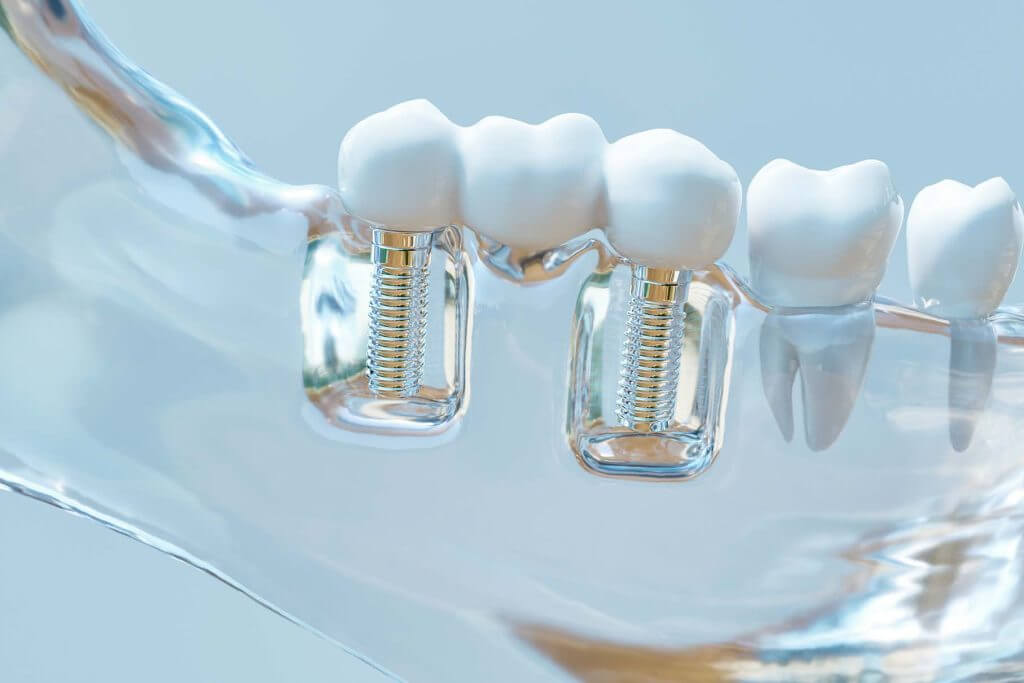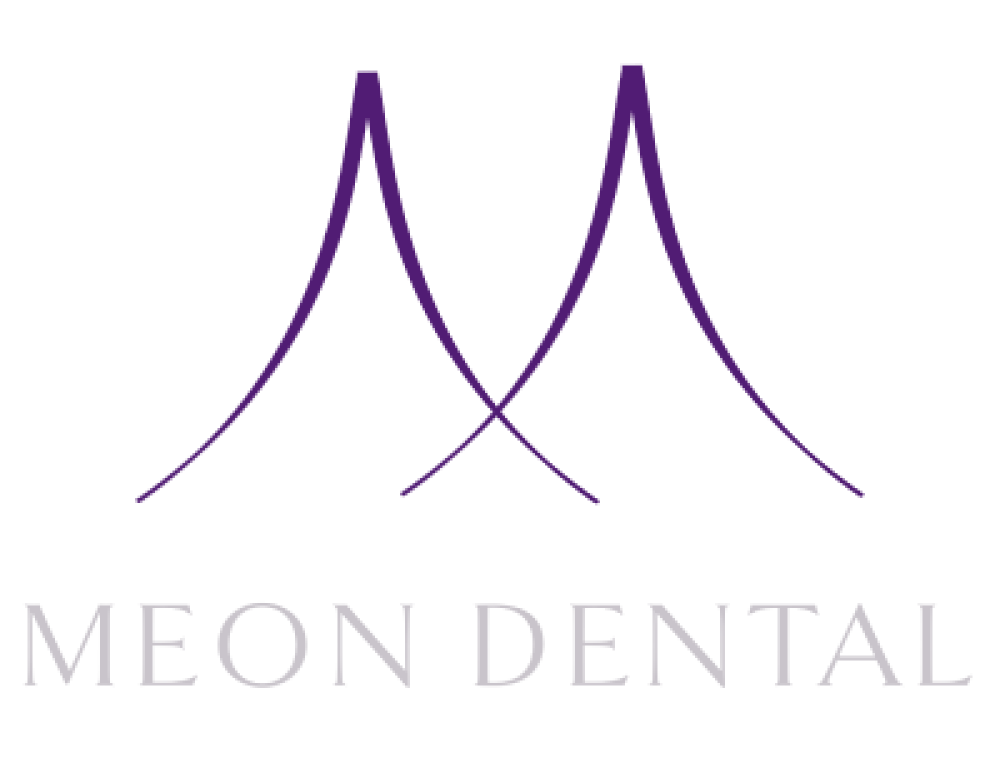IMPLANTS
Is a lost, broken, or damaged tooth affecting your confidence?
Meon Dental can resolve this with a permanent solution with our quality-material dental implants. Dental implants are the perfect option to replace a missing, damaged or broken tooth.


Enjoy a better quality of life with our dental implants that function, feel and appear like a natural tooth. Dental implants give you the confidence you deserve to speak, smile and laugh without worry.
Dental Implant Treatment Plan Bespoke to You
At Meon Dental, dental implant treatment is a permanent tooth restoration that could last a lifetime.
Step 1
In your consultation, we will carefully examine your teeth and gums and answer any concerns or questions you may have about the treatment.
Step 3
Our expert dentists will carry out the dental implant procedure, and to prioritise your comfort, we will provide a safe sedation or local anaesthetic- if you are feeling anxious or worried about the process.
Step 2
If you go ahead with the dental implant treatment, we will use our expertise and understanding of your oral health to discuss and create a bespoke treatment plan available to you.
Step 4
You now have a seamless smile! It is essential to look after your dental implants. We recommend regular checkups and hygiene appointments to maintain the health of your dental implants and prevent any infections.
Benefits of Implants
Strengthens your jaw bone
Promotes healthy gums & oral health
Restores the ability to chew and speak
Gives you the confidence to smile again
Helps align the neighbouring teeth
Answers to Commonly Asked Questions Before Your Dental Implant Appointment
A dental implant is a surgical component that serves as an artificial tooth root. It is typically made of biocompatible materials such as titanium and is surgically placed into the jawbone beneath the gum line. Once the implant has integrated with the surrounding bone through osseointegration, it provides a stable foundation for a replacement tooth or teeth, such as a crown, bridge, or denture, to be attached. Dental implants are designed to look, feel, and function like natural teeth, offering a long-term solution for replacing missing teeth and restoring oral health and function.
A dental implant functions by replicating the natural structure of a tooth root. Beginning with a consultation and planning phase, a dental professional assesses oral health and determines candidacy for the procedure. During the surgical placement, typically performed under local anaesthesia, a biocompatible titanium implant is inserted into the jawbone beneath the gum line. Over the following months, the implant undergoes osseointegration, integrating with the surrounding bone tissue to create a strong and stable foundation. Following successful osseointegration, an abutment is attached to the implant, supporting the final restoration. Custom-made dental crowns, bridges, or dentures are then securely affixed to the abutment, closely resembling natural teeth in appearance and function. This comprehensive process results in a permanent and durable solution for replacing missing teeth, restoring oral function and aesthetics, and enhancing overall quality of life.
Once you have decided to find out more about replacing your missing teeth with dental Implants, you will need to attend a consultation with the Implantologist to assess your suitability and determine what to expect from treatment. You will be asked to complete a medical history form to ensure no medical issues with treatment. The implantologist will carry out a full oral health and dental assessment, take radiographs, scans, and photos of your smile, and arrange for an OPG.
The timeframe for getting dental implants typically ranges between three to eight months, depending on various factors such as the individual’s oral health, additional procedures like bone grafting or sinus lifts, and the healing process. After the initial implant placement, it may take several months for osseointegration to occur, during which the implant integrates with the surrounding bone tissue. Once osseointegration is complete, the abutment and final restoration can be placed, finalising the dental implant process. Overall, the duration of the treatment may vary, but it generally spans from three to eight months to achieve successful implant placement and restoration.
The cost of dental implants can vary depending on several factors, including the location, the case’s complexity, and any additional procedures required. The initial consultation for dental implants is £50. As for the treatment itself, the cost of a single dental implant can range from £1250, depending on the specific requirements of the patient and the dental practice. Additional expenses may include the cost of diagnostic tests, anaesthesia, the abutment, and the final restoration. It’s essential to discuss the full scope of treatment and associated costs with your dental provider to obtain an accurate estimate tailored to your individual needs. Additionally, inquire about any available financing options or dental insurance coverage that may help offset the cost of dental implant treatment.
Yes, there are several steps you can take to prepare for your dental implant procedure and ensure a smooth experience:
Follow Pre-Operative Instructions: Your dental provider will provide specific instructions to follow before your procedure, such as fasting requirements if sedation will be used and any medications to avoid.
Maintain Good Oral Hygiene: Keeping your mouth clean and free of plaque and bacteria can help reduce the risk of complications during and after the procedure. Brush and floss regularly, and consider using an antibacterial mouthwash.
Arrange Transportation: If you receive sedation during the procedure, arrange for someone to drive you home afterwards, as you may be too tired to drive safely.
Plan for Recovery: Schedule time off work or other obligations to allow for rest and recovery following the procedure. Stock up on soft foods and beverages during the initial healing period.
Communicate with Your Provider: Inform your dental provider of any medications you are currently taking, any underlying medical conditions, and any concerns or questions you may have about the procedure. They can address any specific needs or accommodations you may require.
By following these guidelines and any additional instructions your dental provider provides, you can help ensure a successful dental implant procedure and optimal outcomes.

Aftercare for a Dental Implant Treatment
Meon Dental prioritises your oral health and well-being even after your Dental Implant procedure. The essential aftercare is crucial to maintaining good oral health and prolonging the longevity of your Dental
Implant.
We have prepared a comprehensive aftercare guide to assist you. Click here to see the Dental Implant aftercare guide:



